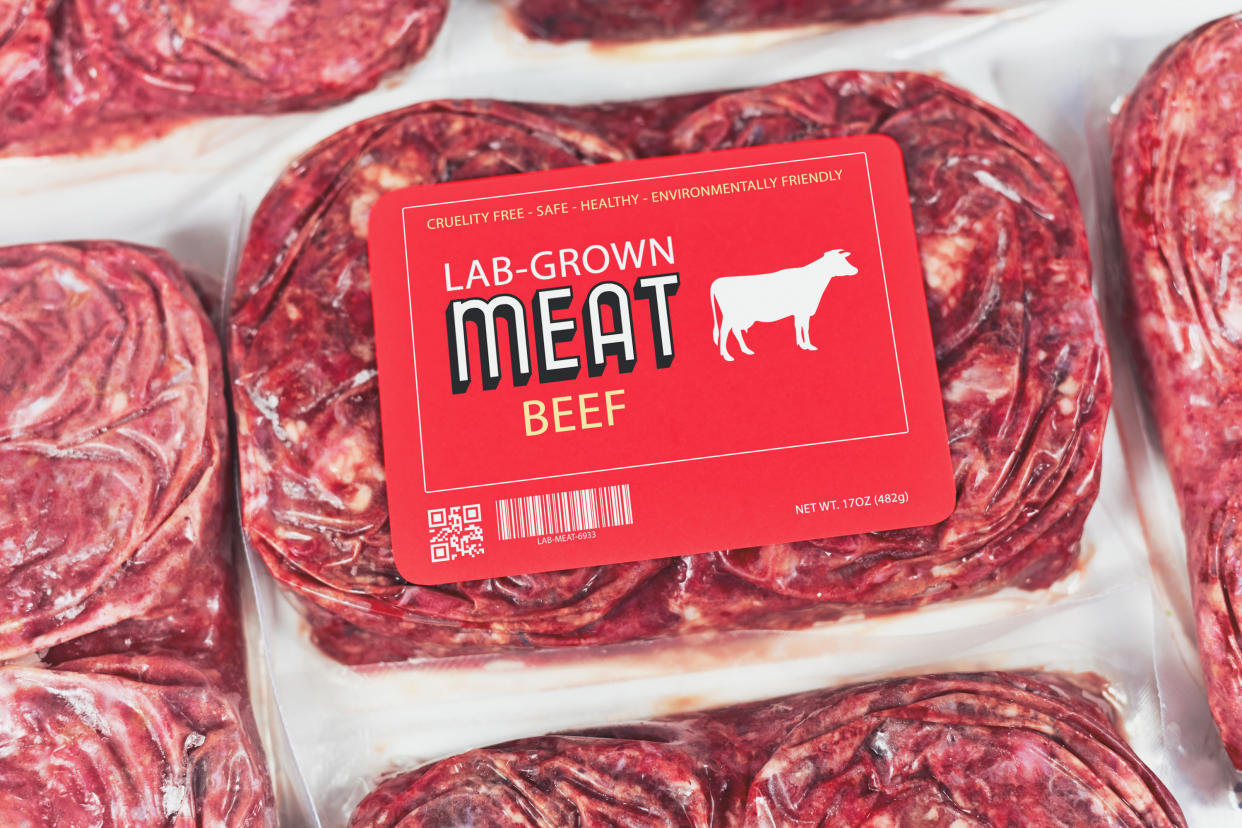Britain should embrace 'synthetic meat' to hit climate targets, report suggests
Watch:Should artificial meat be on UK menus?
Britain should embrace synthetic meat in order to hit its ambitious climate targets, a report has suggested.
The Social Market Foundation report urges policymakers to invest in the 'alternative protein' sector, where meat is produced using technologies such as "growing" muscle fibre from tissue samples.
Other alternative proteins in the report include those derived from plants or from fermentation processes.
According to UN statistics, 14.5% of greenhouse gas emissions come from animal agriculture.
The report points out that consumers in the UK only eat 6% less meat per capita than in 1974 – despite the growing popularity of vegetable products and diets such as veganism.
Read more: Why economists worry that reversing climate change is hopeless
The researchers write: "If the UK is to reach its net zero commitments, meat consumption will need to fall more rapidly over the coming decades.
"However, there has been a conspicuous lack of policy designed to achieve this.
"Whereas media attention has focused on the radical and politically sensitive option of a 'meat tax', the rapid expansion of the alternative protein market offers a way to reduce meat consumption through consumer choice."
Environmentalists have warned that the world’s growing appetite for meat, particularly in emerging economies such as China, is not sustainable because beef, pork and poultry require far greater resources than plant-based proteins.

There are several companies hoping to bring lab-grown meat to the table as early as next year, including Mosa Meat, Future Meat and Memphis Meat.
Read more: A 1988 warning about climate change was mostly right
Mosa Meat uses a small sample of cells taken from a live animal, with a peppercorn-sized sample removed from a cow under anaesthesia.
The cow is left alive.
Those cells are fed with nutrients so that they grow into strands of muscle tissue.
The company claimed it could make up to 80,000 quarter pounders from a single sample.
It said: "Indistinguishable from the meat you’d get from a cow, it sizzles, it’s juicy, and it’s ready to eat. The only difference? Neither animals nor our planet were harmed in the making of our meat."
Cows, in particular, also produce large amounts of greenhouse gas that contribute to global warming.
Read more: Melting snow in Himalayas drives growth of green sea slime visible from space
A report by consultancy firm AT Kearney suggested that by 2040, 60% of the 'meat' we eat won’t come from animals at all.
There are also concerns about animal welfare and industrial farming, said the firm, which based its report on expert interviews.
AT Kearney partner Carsten Gerhardt said in the report: "The shift towards flexitarian, vegetarian and vegan lifestyles is undeniable, with many consumers cutting down on their meat consumption as a result of becoming more conscious towards the environment and animal welfare.
"For passionate meat-eaters, the predicted rise of cultured meat products means that they still get to enjoy the same diet they always have, but without the same environmental and animal cost attached."
Watch: World's first 3D-printed rib-eye steak


